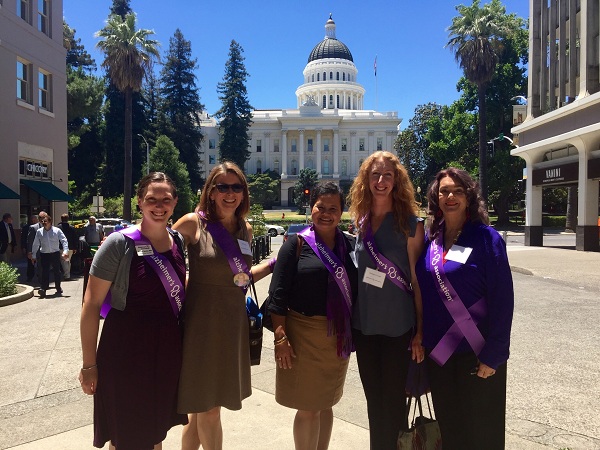Nearly twenty years ago, by uniting my background in medical technology, my husband’s background in business, and the love and support of our family and friends, my husband and I opened our first board and care home for the elderly, a small home with six residents. Over the years, as we served our small northern California community, my “job” became so much more than just that—it became my expertise and my calling. We now have three facilities, and are both proud and humbled to have cared for hundreds of elders in Mendocino County. My passion for caring for the elders has since driven me to become a Certified Dementia Practitioner, a Certified Alzheimer’s Disease and Dementia Care Instructor, a Patient Care Coordinator for an Alzheimer’s respite care program, among many other volunteer roles. I am always eager to share my time and my knowledge with elders, with their families, and with my community. More than anything else, I consider myself an advocate for seniors.
June is Alzheimer’s and Brain Awareness Month, and individuals worldwide work to raise awareness about this devastating disease and the growing global crisis. I was thrilled to be invited by the Alzheimer’s Association to represent Mendocino County as a constituent for California Alzheimer’s Advocacy Day at the State Capitol. Last week, I had the honor of being one of the 175 Alzheimer’s Advocates from throughout California who served at this event at the Capitol. We were more than individuals—each of us represented about 11,000 Californians.
State Assemblyman Jim Wood recently became the new Chairman of the Assembly Health Committee, and our local Alzheimer’s Association chapter needed the help of Alzheimer’s Advocates to educate and engage him in political priorities as well as raise his awareness of Alzheimer’s disease and related dementias. We first emphasized how Alzheimer’s disease is the most costly disease nationwide—a critical and harrowing fact, as there are more people living with Alzheimer’s in the state of California than any other state in the United States. We then brainstormed ways to control the costs associated with Alzheimer’s disease, stressing the importance of early detection and accurate diagnosis. More than half of the individuals living with dementia have not even been diagnosed. Diagnosing Alzheimer’s disease and other dementias both early and accurately will lead to improved disease management, patient outcomes, and most importantly, quality of life. Lastly, we discussed how reducing these costs will require managing the disease effectively—something I strive to do in my local community each day. High-cost crisis situations can be avoided by creating investments in home and community-based supports—starting small to make big changes.
In addition to the education we provided, advocates at the State Capitol also thanked staff and legislators for supportingthe new state funding of $2.5 million for diagnosis and detection of Alzheimer’s disease. The Alzheimer’s Association sponsored this request, which supports the California Alzheimer’s Disease Centers at UC Davis, UCSF, USC, UCLA, UC Irvine, UCSD, and Stanford University.
In a small, rural community such as Mendocino County, there is an unfortunate lack of awareness for aging individuals and their families, as well as for specialists in their care, creating challenges for receiving early diagnosis and care options. Finding the right long-term care option for elders in Mendocino County can be a challenge because of our limited availability and resources. Oftentimes, family members are forced to seek options for long-term care outside of the county. It is heartbreaking to say that this fragmented system for elder care is not unique to Mendocino County—it is seen throughout California and nationwide. As we discussed at the State Capitol, it is imperative for us to bring dementia research and care to the forefront of state, national, and worldwide politics. These changes come slowly, but I truly believe that education is one of the most important aspects of dementia care. Through education of physicians, caregivers, patients, families, and even politicians, we can start at a local level to make those small steps toward big changes.

###
Elizabeth Santos is the Owner/Administrator of Holy Child Residential Care Facility for Elderly in Ukiah and Willits. She is a Certified Dementia Practitioner and is an active participant in Alzheimer's and dementia conferences nationwide, including sessions at UC Davis and Harvard University. She is a devoted advocate for the seniors of our community, and is passionate about creating a society where our elders are brought to the forefront.

